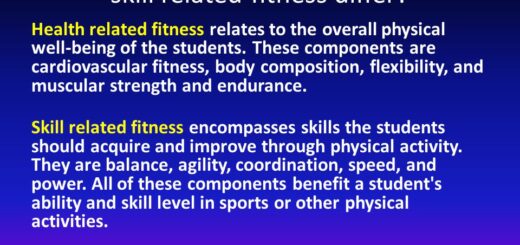The Impact of Alcohol on Health and Fitness
Imagine a world where living a healthy, balanced life was effortless. A world where we could indulge in our favorite indulgences without any repercussions. Unfortunately, in reality, the choices we make can have a significant impact on our overall health and fitness. One such choice is the consumption of alcohol. In this article, we will explore the impact that alcohol can have on our well-being and physical performance. From the immediate effects on our body to the long-term consequences, we will uncover the truth about how alcohol affects our health and fitness journey.
The Impact of Alcohol on Health and Fitness
If you’re someone who enjoys a drink every now and then, it’s important to understand how alcohol can affect your health and fitness. While moderate alcohol consumption can be part of a balanced lifestyle, excessive or regular drinking can have negative consequences on various aspects of your well-being. In this article, we’ll explore the physical, mental, and nutritional effects of alcohol, as well as its impact on sleep, weight gain, muscle recovery, hormonal balance, hydration, cognitive function, and motivation and performance.
Physical Effects of Alcohol
Alcohol can impact your physical well-being in several ways. One of the noticeable effects is delayed muscle recovery. When you consume alcohol, it interferes with the body’s ability to repair and rebuild muscles after exercise. As a result, your recovery time may increase, and you might experience more muscle soreness than usual. Additionally, alcohol reduces physical performance by negatively affecting coordination, balance, and reaction time. This can hinder your athletic abilities and limit your overall fitness progress. It’s also important to note that alcohol consumption increases the risk of injury, as it impairs judgment and coordination.
Furthermore, drinking alcohol weakens your immune system, making you more susceptible to illnesses and infections. Alcohol affects the production of immune cells, reducing their effectiveness in defending your body against harmful pathogens. Therefore, excessive drinking can compromise your ability to stay healthy and active.
Mental Effects of Alcohol
Alcohol not only impacts us physically, but it can also have significant effects on our mental health and cognitive abilities. Excessive alcohol consumption has been linked to mental health disorders such as anxiety and depression. While alcohol may initially provide a temporary sense of relaxation, it can worsen these conditions in the long run. Additionally, alcohol negatively impacts cognitive abilities, including memory, attention, and reasoning. Prolonged alcohol abuse can lead to permanent damage to the brain, affecting your overall cognitive functioning.
Drinking alcohol also impairs decision-making and judgment. It lowers inhibitions and can lead to risky behaviors that you might not engage in when sober. This includes making poor choices regarding your health and fitness, such as consuming unhealthy foods or neglecting exercise.
Effects on Nutritional Intake
When it comes to your nutritional intake, alcohol can have several negative consequences. Firstly, alcohol is high in empty calories, meaning it provides little to no nutritional value. These empty calories can contribute to weight gain and make it challenging to maintain a healthy diet. Moreover, alcohol impairs your body’s ability to absorb essential nutrients from the food you consume. This can lead to nutrient deficiencies, even if you are eating a well-balanced diet. Additionally, excessive alcohol consumption can interfere with the storage of nutrients in your body, further exacerbating the risk of deficiencies.
Alcohol’s Impact on Sleep
Getting adequate sleep is vital for overall health and wellbeing, and alcohol can have a significant impact on your sleep patterns. While alcohol might make you feel drowsy initially, it disrupts the normal sleep cycle. It reduces the amount of rapid eye movement (REM) sleep, which is crucial for memory consolidation and emotional regulation. This can result in feeling more fatigued and less refreshed upon waking up. Prolonged alcohol abuse can also contribute to the development of sleep disorders, such as insomnia or sleep apnea.
Alcohol and Weight Gain
If you’re striving to maintain a healthy weight, it’s important to be aware of the impact of alcohol on weight gain. Alcoholic beverages are relatively high in calories, and the caloric density of alcohol can contribute to weight gain over time. Moreover, alcohol can slow down your metabolism, making it harder to burn calories efficiently. Drinking alcohol can also increase cravings and trigger overeating, leading to further weight gain. It’s important to moderate your alcohol consumption and be mindful of the potential impact on your weight management goals.
Alcohol and Muscle Recovery
For individuals who engage in regular exercise or strength training, alcohol can hinder muscle recovery and growth. Alcohol consumption impairs the process of protein synthesis, which is necessary for muscle repair and growth. This delay in muscle recovery can lead to prolonged muscle soreness and hinder your progress in building strength and endurance. Furthermore, alcohol reduces the production of growth hormone, which is crucial for muscle development. It’s important to strike a balance between your fitness goals and alcohol consumption to support optimal muscle recovery.
Alcohol and Hormonal Balance
Alcohol can disrupt the delicate balance of hormones in your body. For example, excessive alcohol consumption can lower testosterone levels in men, which can lead to decreased muscle mass, increased body fat, and reduced energy levels. In women, alcohol can impact estrogen levels, potentially leading to hormonal imbalances and irregular menstruation. Additionally, alcohol impairs thyroid function, which can impact metabolism and energy regulation. Maintaining a healthy hormonal balance is crucial for overall health and fitness, and excessive alcohol intake can have a detrimental effect on this balance.
Effects of Alcohol on Hydration
Proper hydration is essential for overall health and fitness, and alcohol can interfere with this process. Alcohol has diuretic properties, meaning it increases urine production and leads to dehydration. It also depletes your body of essential electrolytes, which are crucial for maintaining proper hydration levels. Furthermore, excessive alcohol consumption can impair kidney function, making it more challenging for your body to regulate fluid balance. Staying hydrated is vital for optimal physical performance and overall well-being, so it’s important to be mindful of the dehydrating effects of alcohol.
Impaired Cognitive Function
Alcohol consumption can have a significant impact on cognitive function. Excessive drinking can impair memory, attention, and concentration, making it difficult to perform cognitive tasks effectively. Alcohol affects neurotransmitters in the brain, altering communication between cells and leading to cognitive impairment. Prolonged alcohol abuse can result in long-term cognitive deficits, affecting your ability to learn, problem-solve, and perform daily tasks.
Alcohol’s Influence on Motivation and Performance
If you’re looking to stay motivated and perform your best in physical activities or sports, it’s important to consider the influence of alcohol. Alcohol consumption decreases motivation levels, making it harder to maintain an active lifestyle and stick to your fitness routine. It also reduces endurance and stamina, leading to decreased performance levels during exercise or sports activities. Furthermore, alcohol impairs hand-eye coordination, making it more challenging to engage in activities that require precise movements.
In conclusion, while alcohol can be enjoyed in moderation as part of a balanced lifestyle, excessive or regular drinking can have negative impacts on your health and fitness. From delayed muscle recovery to impaired cognitive function, alcohol affects various aspects of your overall well-being. It’s important to be mindful of the potential consequences and make informed choices about alcohol consumption to support your health and fitness goals. Remember, moderation is key, and always prioritize your well-being above excessive alcohol intake.

















It's great that you talked about how business insurance can provide financial protection against unexpected events and help ensure the…
I like that you mentioned how business insurance is essential for protecting your bottom line and the long-term viability of…